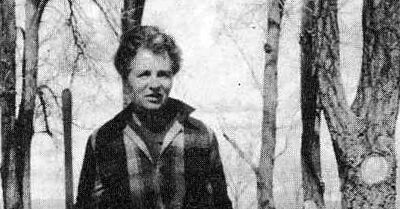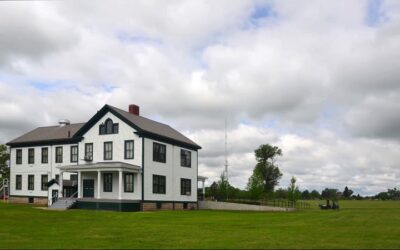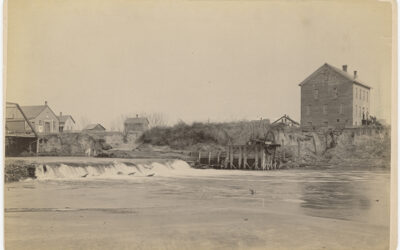On December 10, 1977, Lincoln experienced one of its worst traffic jams ever, as over a thousand tractors and farm trucks descended on the capital to send a message: they were going on strike.
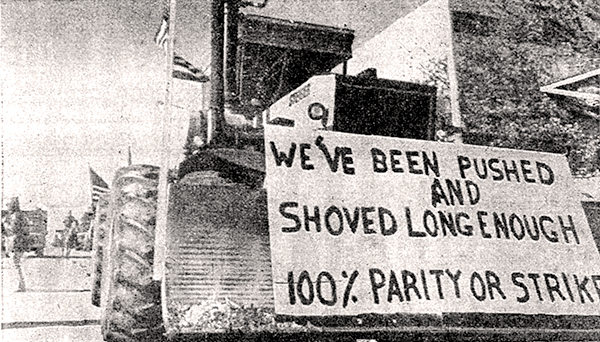
Lincoln police said it was one of the worst traffic jams they’d ever seen, “even worse than the football game.”
More than a thousand tractors and farm trucks descended on the capital city on December 10, 1977. They came to announce a farm strike. The Omaha World-Herald reported:
“On Interstate 80 west of Lincoln, a line of vehicles poised on the shoulder awaiting the zero hour to move in stretched about 13 miles. And it was only one of four movements into the city, each coming from a point of the compass.”
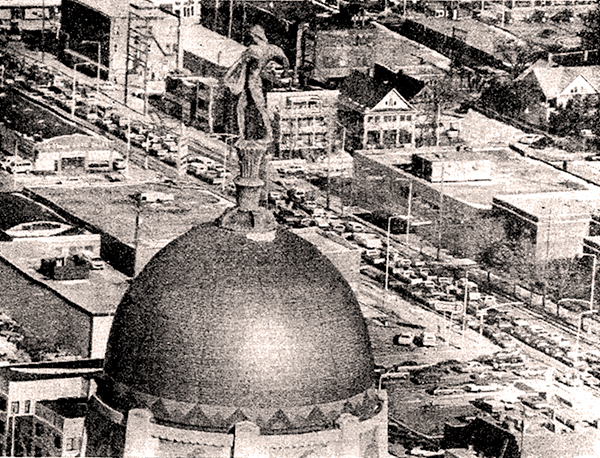
Above: Line of trucks and tractors in Lincoln. From Omaha World-Herald, Dec. 11, 1977. Top photo: Omaha World-Herald, Dec. 11, 1977.
The event was organized by a group called the American Agricultural Movement. It was part of a nationwide protest in response to what was becoming a “farm crisis.”
Farm income had been strong in the early 1970s, but by 1977, in the words of historian Bill Ganzel, “record crops had pushed prices down, and the cost of fuel, seed, pesticides and other farm costs had risen… In addition, the value of farm land — the ‘equity’ or value that farmers use to secure loans to operate each year — had dropped. Banks were no longer willing to loan to smaller farmers. Many were in danger of losing their farms.”
How do farmers go on strike? Movement leaders announced that farmers across the US would stop buying or selling on December 14 unless the federal government met their demands. They wanted farm programs to ensure “parity”—meaning that generally the farmers’ income and expenses would be balanced, leaving enough to provide a reasonable standard of living.
The plan was reminiscent of the 1930s Farm Holiday Movement. During the Great Depression, farmers faced a similar combination of high debt and low commodity prices. Some farmers withheld their products from the market to create scarcity and drive up prices. In Nebraska and Iowa, groups of farmers even set up roadblocks and searched trucks to keep other farmers from selling.
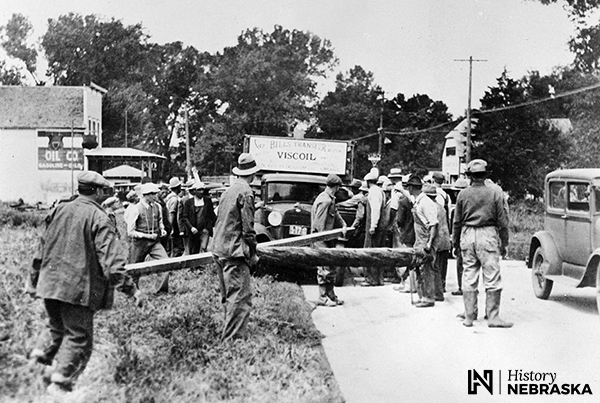
Members of the Farmers’ Holiday Association stop a truck on its way to Omaha, ca. 1932. History Nebraska RG986-2
But the Farm Holiday Movement didn’t succeed, and ag economists predicted a similar failure for the 1977 farm strike.
“Historically, farmers have never been able to make joint actions such as this work,” said a syndicated article reprinted by the World-Herald. “For every farmer willing to withhold production, a handful will happily undercut him by selling.”
Opinion polls showed that most Nebraskans supported the strike. Governor J.J. Exon even rode on the back of tractor to a rally at the Devaney Center, where he and Lincoln mayor Helen Boosalis were among the speakers addressing the crowd of 6,000 strike supporters.
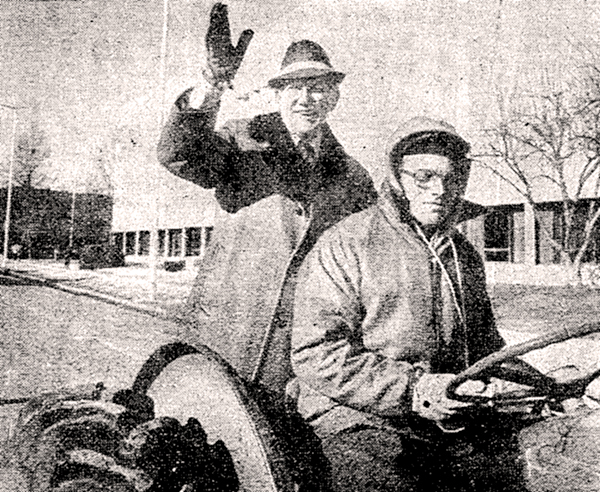
Nebraska governor Jim Exon, standing, on his way to the strike rally. Omaha World-Herald, Dec. 11, 1977.
But opinion polls told a second story. While most farmers said they supported the strike, only a third said they planned to participate.
In the end, the strike failed and the Farm Crisis deepened over the next several years. Read more about it at Nebraskastudies.org, a joint project of History Nebraska, Nebraska Public Media, and the Nebraska Department of Education.
Did you participate in the Tractorcade or the strike? Tell us about it.


